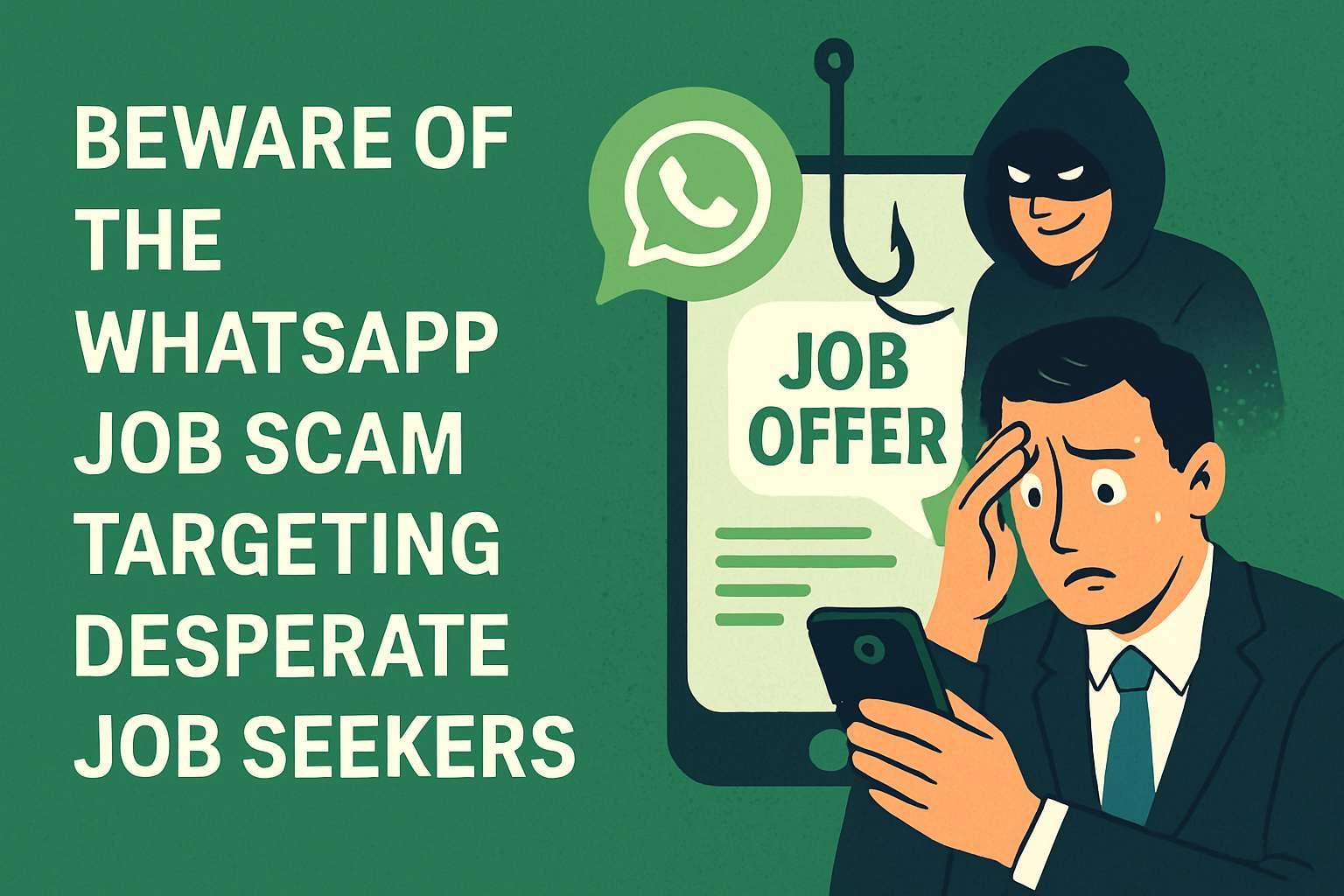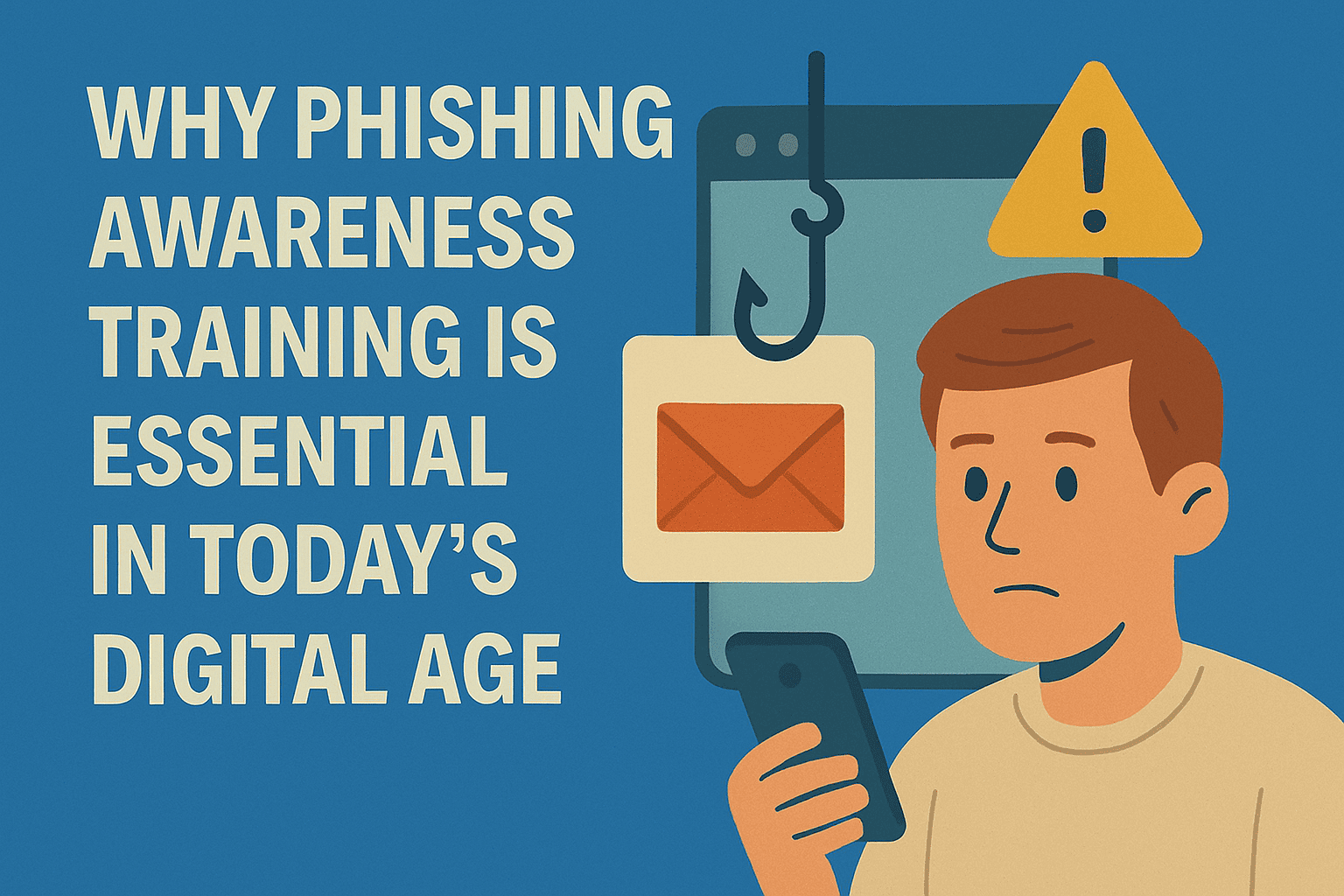Beware of the WhatsApp Job Scam Targeting Desperate Job Seekers
Scammers offer high-paying remote jobs via WhatsApp — but they’re designed to steal your money and identity.
📲 WhatsApp Job Scam Overview
The scam begins with a WhatsApp (or SMS) message from an unknown number claiming to represent a company hiring for flexible, remote jobs. Victims are offered up to £300 (€344) per hour, often paid in cryptocurrency like Tether (USDT).
While the job appears legitimate, the aim is to manipulate victims into sending money and sharing sensitive personal information — with zero actual payment in return.
🧠 How the WhatsApp Job Scam Works (Step-by-Step)
1. Initial Message from “Recruiter”
Victims receive a message from a random international number. The sender claims to be hiring urgently for remote work with high pay. Phrases like “boost online exposure” or “optimize data” are commonly used.
2. Sharing More Information
Upon expressing interest, the scammer provides vague job details and sets up a “training week” involving basic tasks like watching videos, liking posts, or clicking ads.
3. Fake Training Dashboard
Victims are given login credentials to a realistic-looking dashboard that shows daily tasks and growing earnings — but these earnings are fake.
4. Small Money Requests Begin
Once trust is established, scammers request small amounts (e.g., ₹2,000 or $30) to unlock bonuses, enable withdrawals, or access more tasks. Victims, already seeing money in the dashboard, often comply.
5. Setup of Crypto Wallet
To “process salary,” victims are told to set up a crypto wallet. This lets scammers operate anonymously and move money untraceably.
6. Larger Investments Demanded
Scammers increase the stakes — asking for thousands — to unlock “final bonuses” or “advance levels.” Victims who are emotionally and financially invested tend to keep sending more.
7. Sudden Disappearance
Eventually, all contact stops. The website goes offline, numbers are blocked, and the promised job never existed.
📉 Scale of the Scam
According to JobsAware UK, over 1,000 people receive these fake job messages daily. Experts say this is just the tip of the iceberg, as most victims never report the fraud due to embarrassment or helplessness.
🕵️♂️ Who’s Behind It?
These scams are often run by international cybercrime syndicates. They operate across borders using encrypted messaging apps, spoofed websites, and untraceable crypto wallets. Law enforcement continues to struggle with identifying the true perpetrators.
⚠️ How to Identify a WhatsApp Job Scam
-
Messages from unknown or foreign numbers
-
Claims of high pay with no experience
-
Instructions to join Telegram or WhatsApp groups
-
Requirement to pay money before receiving earnings
-
Use of cryptocurrency for salary payout
-
Fake dashboards showing increasing, but inaccessible earnings
🛡️ What to Do If You’re a Victim
-
Stop all communication with the scammer
-
Do not send more money under any circumstances
-
Report the number to WhatsApp and cybercrime.gov.in
-
If money was sent, report the transaction to your bank or crypto exchange
-
Seek emotional support — being scammed is traumatic, but you’re not alone
✅ Tips to Avoid Future Scams
-
Never trust unsolicited job offers on WhatsApp or Telegram
-
Always verify company details on official websites or LinkedIn
-
Don’t install unknown apps or register on fake portals
-
Avoid crypto transactions for freelance or job payments
-
Always consult someone you trust before paying or investing











